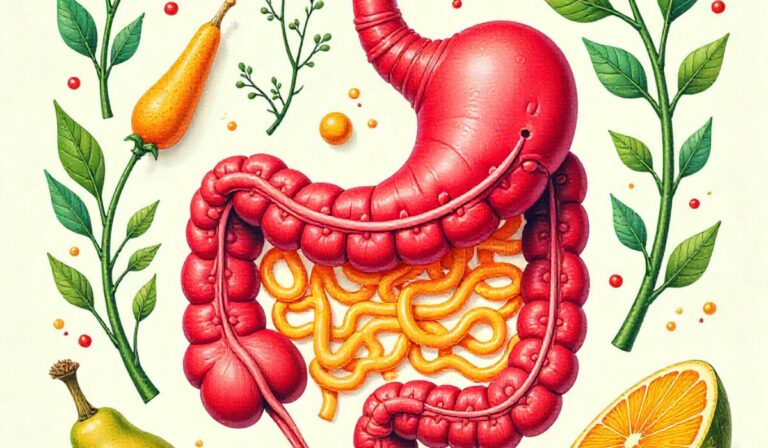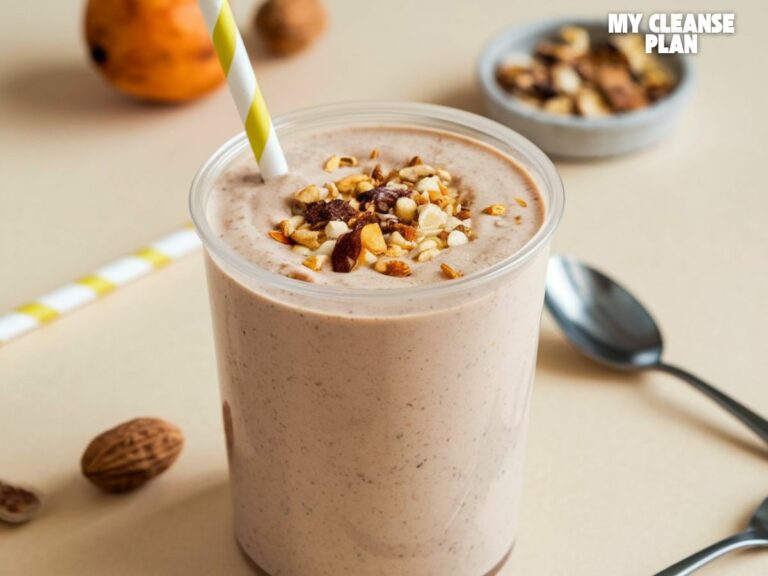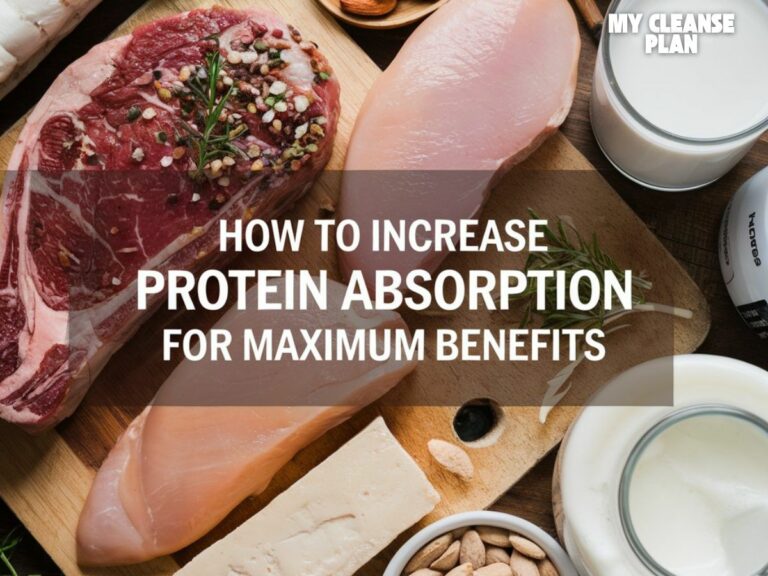10 Tips for Following a Plant-Based Diet With Adhd
Following a plant-based diet can benefit those with ADHD. It supports focus and boosts mood.
But making dietary changes isn’t always simple. Many find it challenging to stick to new eating habits, especially with ADHD.
This condition often leads to impulsivity and distraction, making dietary discipline tougher.
Yet, with the right approach, a plant-based diet can become manageable and rewarding.
This blog post offers helpful tips for combining ADHD management with plant-based eating.
From meal planning to mindful eating, these tips aim to simplify the journey. You’ll discover ways to maintain energy levels and stay organized.
Whether you’re new to plant-based diets or seeking better focus, these insights can guide you.
Embrace a balanced lifestyle that supports your mental well-being and nurtures your body. Let’s explore how to make this diet work for you.
Key Takeaways:
Expert Guidance:

Benefits Of Plant-based Diet For Adhd
Exploring a plant-based diet can offer calming benefits for those with ADHD. It may improve focus and reduce symptoms.
Nutrient-rich foods like fruits, vegetables, and whole grains support mental well-being.
### Benefits of Plant-Based Diet for ADHD A plant-based diet can offer numerous advantages for those managing ADHD.
By shifting your focus to whole, nutritious foods, you may find improvements in various aspects of your daily life. Let’s explore how a plant-based diet can be beneficial for ADHD, enhancing focus, mood, and energy levels.
Improved Focus And Concentration
Imagine a world where distractions fade and clarity becomes your new norm. Adopting a plant-based diet can help you achieve better focus and concentration.
Foods rich in omega-3 fatty acids, like flaxseeds and walnuts, are known to support brain health. Including leafy greens and colorful vegetables can provide essential vitamins and minerals.
These nutrients support cognitive functions and may help you stay on task. Have you ever noticed how a healthy meal makes your mind feel sharper?
Enhanced Mood And Energy Levels
Your diet plays a significant role in how you feel throughout the day. A plant-based diet, abundant in fresh fruits, vegetables, and whole grains, can boost your mood and energy levels.
Eating a variety of plant foods ensures you get enough nutrients like magnesium and vitamin B6.
These nutrients are crucial for producing serotonin, a hormone that contributes to happiness and well-being. Have you ever experienced the sluggishness that follows a heavy meal?
Plant-based eating can help you avoid that and keep your energy steady. Switching to a plant-based diet might be the change you’ve been looking for.
It offers practical ways to enhance your daily life while managing ADHD. Why not give it a try and see the difference it can make for you?
Common Challenges Faced
Adopting a plant-based diet can be a rewarding journey, especially for those managing ADHD.
However, it comes with its own set of challenges. These hurdles often revolve around impulse control and dietary restrictions.
Understanding and overcoming these obstacles can pave the way for a successful transition.
Managing Impulse Control
One of the common challenges faced by individuals with ADHD is impulse control. This can make sticking to a plant-based diet tricky.
You might find yourself reaching for snacks or meals that don’t align with your dietary goals. It’s crucial to have strategies to combat this.
Start by planning your meals. Have a clear idea of what you will eat each day. This reduces the temptation to make impulsive food choices.
Consider prepping plant-based snacks that are easy to grab when you need a quick bite.
Engage your senses. Keep colorful and visually appealing fruits and veggies within reach.
The vibrant colors can be enticing and encourage healthier choices. Have you tried placing a bowl of fresh berries or a mix of nuts on your kitchen counter?
Dealing With Dietary Restrictions
Dietary restrictions can be another hurdle in following a plant-based diet with ADHD.
You may encounter foods that need to be excluded due to allergies or sensitivities. Adjusting your diet while ensuring nutritional balance is crucial.
Make a list of foods you can safely enjoy. This can serve as your go-to guide for meal planning.
Look for alternatives that can replace restricted items while keeping meals exciting. Instead of dairy milk, opt for almond or oat milk.
Experiment with new recipes. This keeps your diet interesting and diverse. Find creative ways to cook familiar vegetables or legumes.
You could try blending chickpeas into a creamy hummus or roasting them for a crunchy snack.
Facing challenges head-on can lead to a more fulfilling plant-based journey. How do you plan to tackle these obstacles?
Choosing The Right Foods
Discovering the right foods can help manage ADHD symptoms while following a plant-based diet.
Focus on nutrient-rich options like leafy greens, nuts, and whole grains. These choices support brain health and improve concentration.
Choosing the right foods is crucial when following a plant-based diet, especially if you have ADHD.
The nutrients you consume can significantly impact your focus and energy levels. By selecting the right mix of vegetables, fruits, whole grains, and legumes, you can support your brain health and overall well-being.
It’s not just about cutting out animal products; it’s about making smart choices that cater to your body’s needs.
Let’s dive into how you can pick the best foods for a plant-based diet tailored to ADHD.
Nutrient-rich Vegetables And Fruits
Start by adding a variety of colorful vegetables and fruits to your plate. These foods are packed with essential vitamins and minerals that nourish your brain.
Think leafy greens like spinach and kale, which are rich in iron and magnesium. Berries are another great option; they are high in antioxidants, which can help protect your brain cells.
Have you ever tried snacking on carrot sticks or apple slices? They’re not just tasty but also help keep your energy levels stable.
Whole Grains And Legumes
Whole grains are a fantastic source of complex carbohydrates, providing you with a steady supply of energy. Brown rice, quinoa, and oats are excellent choices.
They release energy slowly, helping you maintain focus and concentration throughout the day. Legumes like lentils and chickpeas are rich in protein and fiber, which can help regulate mood swings.
Have you considered making a hearty lentil soup or a chickpea salad? They’re easy to prepare and incredibly satisfying.
Choosing the right foods can transform your plant-based diet into a powerful tool for managing ADHD symptoms. What changes will you make to your diet today?
Meal Planning Strategies
Meal planning with ADHD can be challenging, especially on a plant-based diet. A structured approach can make daily nutrition manageable and fun.
Planning meals ahead helps reduce stress and ensure dietary balance. Let’s explore some practical strategies for successful meal planning.
Simple And Quick Recipes
Focus on recipes that are easy to prepare. Choose dishes that require minimal ingredients and steps. Stir-fries and salads are excellent choices.
They offer variety and are quick to assemble. Smoothies are perfect for breakfast. Blend fruits and spinach for a nutritious start. Look for recipes with common pantry items.
This saves time and avoids hassle. Create a collection of favorites for quick access.
Batch Cooking Techniques
Batch cooking is a lifesaver for busy schedules. Prepare large portions of meals and store them. Soups and stews are ideal for this method.
Cook once and enjoy several servings over the week. Invest in quality storage containers.
Label them with dates to keep track. Freeze portions for longer preservation. Use these for quick lunches or dinners. Batch cooking reduces daily cooking stress.
Avoiding Processed Foods
Following a plant-based diet can be rewarding for individuals with ADHD. It can enhance focus and overall well-being.
One essential aspect is avoiding processed foods. These foods often contain hidden sugars and additives.
They may affect concentration and mood. Opting for whole, natural foods can make a difference. It can help manage ADHD symptoms more effectively.
Identifying Hidden Sugars And Additives
Reading labels is crucial. Processed foods often contain hidden sugars. Names like sucrose, high-fructose corn syrup, and dextrose are common.
Additives like artificial colors and flavors can also be present. These can impact attention and behavior. Being aware of these ingredients helps in making informed choices.
Choosing Natural Alternatives
Choosing natural alternatives is key. Fresh fruits and vegetables are excellent choices.
They provide essential nutrients without additives. Whole grains like quinoa and brown rice are good for energy.
They are free from added sugars. Nuts and seeds offer healthy fats and proteins. These support brain health and improve focus.
Supplementing Nutrients
Managing ADHD with a plant-based diet involves strategic nutrient supplementation.
Ensure adequate intake of omega-3s, iron, and vitamin B12. Explore diverse plant foods to maintain balanced energy and focus.
Embarking on a plant-based diet while managing ADHD can be a rewarding journey, offering numerous benefits for both your physical and mental health.
However, one key consideration is ensuring you get enough nutrients. A plant-based diet can sometimes lack certain vitamins and minerals essential for brain function, especially for individuals with ADHD.
To bridge these nutritional gaps, supplementation can be incredibly helpful. Let’s dive into how you can effectively supplement your diet with essential nutrients.
Essential Vitamins And Minerals
When following a plant-based diet, you might miss out on some vital nutrients that are primarily found in animal products.
Vitamin B12, for instance, is crucial for brain health and energy levels. Plant-based sources are rare, so a supplement can be your best bet. Think about iron too.
Although you can get iron from plants like spinach and lentils, it’s not as easily absorbed as iron from meat. Consider taking a plant-based iron supplement to boost your energy and focus.
Are you getting enough calcium? Many plant-based diets lack dairy, which is rich in calcium. Opt for fortified plant milks or calcium supplements to maintain bone health.
Using Omega-3 Fatty Acids
Omega-3 fatty acids are critical for brain function and can help manage ADHD symptoms.
Fish is a common source, but on a plant-based diet, you might need alternatives.
Have you tried flaxseeds or chia seeds? They are excellent plant sources of Omega-3s. Sprinkle them on your morning oatmeal or blend them into smoothies.
Consider algae-based Omega-3 supplements. Algae is a direct source and is suitable for vegans. These supplements can support cognitive functions and improve concentration.
Supplementing nutrients is not just about filling gaps. It’s about optimizing your diet to help you thrive with ADHD.
Have you considered how these nutrient tweaks could change your daily routine?
Mindful Eating Practices
Following a plant-based diet can be particularly beneficial for managing ADHD symptoms, but it requires intentional eating habits to truly harness these benefits.
Mindful eating practices can help you stay present during meals, ensuring you get the most nutrition and satisfaction out of what you’re eating.
By tuning into your body and savoring each bite, you can better manage your ADHD symptoms and enjoy your plant-based journey.
Recognizing Hunger Cues
Understanding your body’s hunger signals can be a game-changer. Sometimes, ADHD can blur the line between hunger and boredom. Take a moment to assess if you’re truly hungry or just seeking stimulation.
Next time you reach for a snack, pause and ask yourself if your stomach is growling or if it’s just a habit.
Notice the difference between physical hunger and emotional cravings. This awareness helps you make conscious food choices that align with your plant-based goals.
Practicing Slow Eating
Rushing through meals is common, especially when distractions are constant. Eating slowly helps you fully appreciate your food and recognize fullness before overeating. Set a timer to remind you to slow down if needed.
Try putting your fork down between bites to savor flavors and textures. This simple practice not only aids digestion but also enhances your meal experience.
Have you ever noticed how flavors change as you chew? Embrace this curiosity and make each meal a mindful one.
Integrating these mindful eating practices can transform your plant-based diet into a more enriching experience.
What small change will you try today to eat more mindfully? Your journey with ADHD and a plant-based diet is unique—embrace it with intention and awareness.
Building A Support System
Embarking on a plant-based diet with ADHD can seem challenging. Support makes the journey easier.
Having a solid network helps maintain motivation and focus. This support can come from professionals or communities.
Connecting With Dietitian Or Nutritionist
Consult a dietitian familiar with ADHD and plant-based diets. They guide you in making balanced meal plans.
They ensure you get essential nutrients. Regular check-ins can help adjust your diet as needed. This professional guidance provides reassurance and structure.
Joining Adhd And Diet Groups
Find online or local groups focused on ADHD and diet. Joining these groups offers a sense of community.
Members share tips, recipes, and experiences. They understand your challenges and can offer advice. Engaging with others fosters accountability and encouragement.
Tracking Progress And Adjustments
Tracking progress and making adjustments is vital when following a plant-based diet with ADHD. Observing changes helps in understanding the diet’s impact on symptoms.
Regularly reviewing progress aids in identifying what works best. This approach ensures the diet aligns with personal health goals.
Here, we explore effective ways to monitor and adapt your plant-based journey.
Monitoring Behavioral Changes
Keep a daily journal of moods and behaviors. Note any improvements or setbacks. Record energy levels, concentration, and emotional responses.
Observing these changes can reveal patterns over time. Discuss findings with healthcare professionals for a comprehensive view. Involving family or friends in tracking can provide additional insights.
Adjusting Diet As Needed
Listen to your body’s signals. If certain foods cause discomfort, reconsider their place in your diet.
Experiment with different plant-based foods to see what suits best. Consult a nutritionist if necessary to ensure balanced nutrition.
Make small, gradual changes for better adjustment. This careful approach helps maintain motivation and dietary success.
Staying Motivated And Consistent
Staying motivated and consistent on a plant-based diet can be challenging. Especially for those with ADHD.
Distractions can easily derail your efforts. It’s important to find strategies that help you stay on track. Here are some tips to keep you motivated and consistent in your plant-based journey.
Setting Realistic Goals
Start with simple and achievable goals. Focus on small changes. Choose a few plant-based meals to try each week.
Gradually increase the number of plant-based meals. This approach reduces overwhelm and boosts confidence.
It’s important to set goals that fit your lifestyle. Make them specific and measurable.
For example, aim to eat one plant-based meal a day. Over time, these goals can become habits. They pave the way for long-term success.
Celebrating Small Achievements
Every small win deserves recognition. Did you stick to your meal plan for a day? Celebrate it. Cook a new plant-based recipe?
Give yourself a pat on the back. Celebrating small achievements keeps you motivated. It builds positive momentum. Consider keeping a journal of your successes.
Reflect on these moments when motivation dips. Recognizing your progress boosts morale and determination. It reinforces your commitment to a plant-based lifestyle.
Frequently Asked Questions Of 10 Tips for Following a Plant-Based Diet With Adhd
Can A Plant-based Diet Help With Adhd?
A plant-based diet may improve ADHD symptoms for some individuals. Nutrient-rich foods can support brain health. Omega-3 fatty acids, found in flaxseeds and walnuts, are beneficial. Eliminating processed foods and artificial additives can also help. Always consult a healthcare professional before making dietary changes for ADHD management.
What Are The Nutrition Tips For People With Adhd?
Eat a balanced diet rich in proteins, complex carbohydrates, and healthy fats. Include omega-3 sources like fish. Limit sugar and artificial additives. Stay hydrated and maintain regular meal times. Consult a nutritionist for personalized advice.
What Are 5 Foods That Keep Adhd Away?
Omega-3 rich fish like salmon boost brain health. Leafy greens provide essential nutrients. Whole grains stabilize energy levels. Eggs offer choline for memory support. Nuts and seeds supply magnesium, aiding concentration.
What Natural Plant Helps With Adhd?
Ginkgo biloba may help improve focus in individuals with ADHD. It enhances cognitive function and attention. Herbal supplements like ginseng and bacopa monnieri can also support concentration. Always consult a healthcare professional before trying new treatments.
Conclusion
Adopting a plant-based diet can benefit those with ADHD. It supports brain health and improves focus.
Start with small changes to make it manageable. Integrate more fruits, vegetables, and whole grains into meals. Stay mindful of nutrient needs like protein and iron.
Experiment with recipes to find enjoyable options. Listen to your body and adjust as needed.
Consistency is key for long-term success. Try these tips to enhance focus and well-being.
Remember, everyone’s journey is unique. Enjoy the process and be patient with yourself.
A healthier lifestyle awaits.






